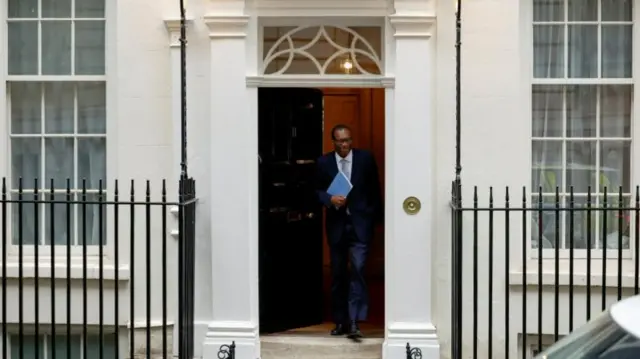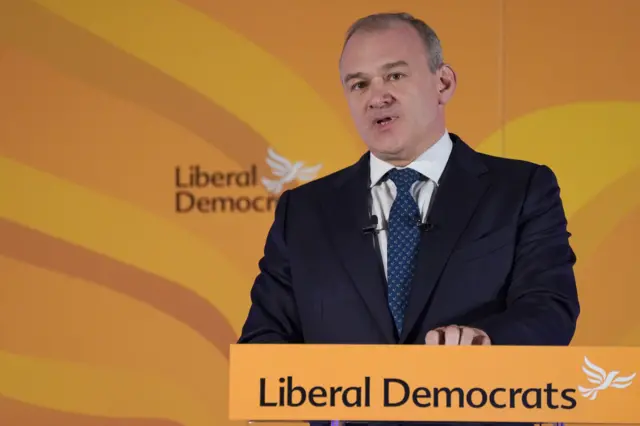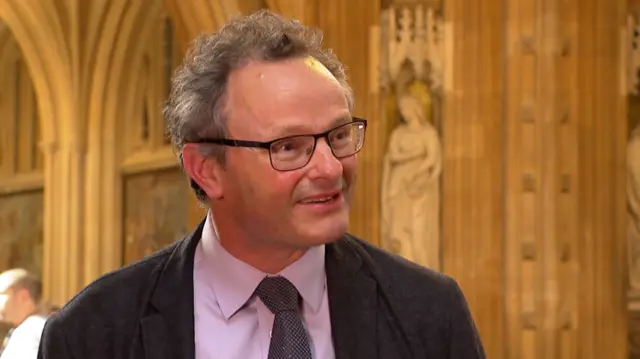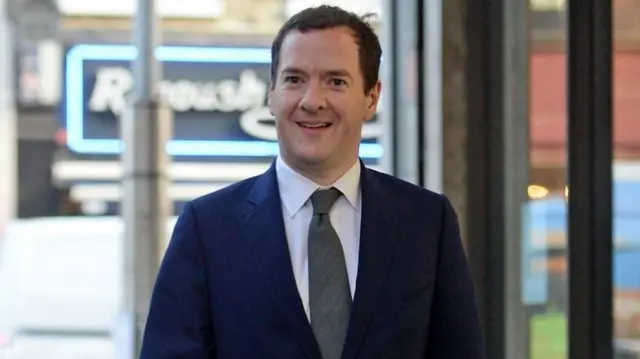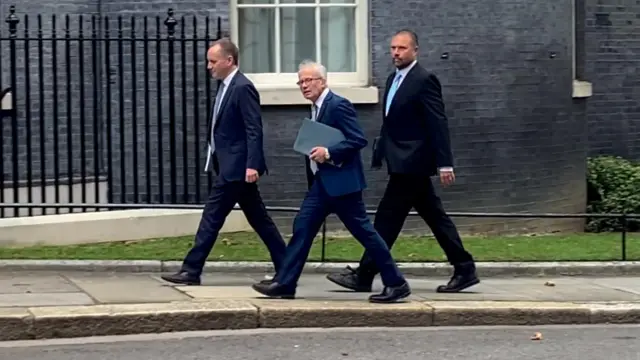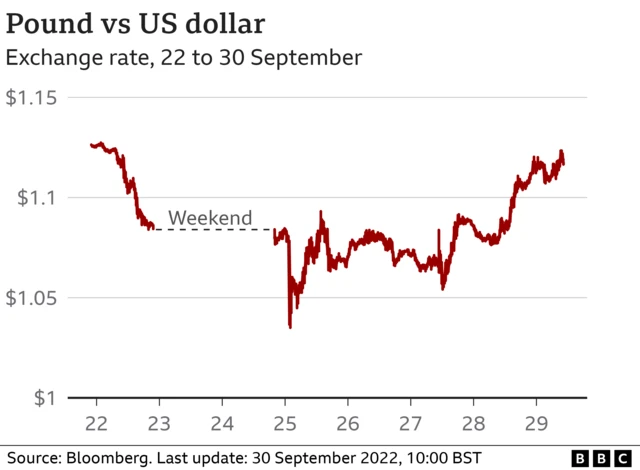Pound reverses earlier gainspublished at 13:48 British Summer Time 30 September 2022
The pound is now trading at just over $1.10 after hitting more than $1.12 earlier on Friday.
Financial markets initially appeared to be buoyed by Liz Truss and Kwasi Kwarteng's meeting with the independent fiscal watchdog, the Office for Budget Responsibility (OBR).
The Treasury initially refused the OBR's offer of economic forecasts to accompany last Friday mini-budget - a rejection which unnerved financial markets.
Since this morning, sterling has ticked lower against the dollar.
Both the OBR and the Treasury confirmed that the economic and fiscal forecasts will not be released before 23 November, when Kwarteng announces his fiscal plans.
Some, including the chairman of the Treasury select committee, Mel Stride, had hoped the report would be published earlier.



